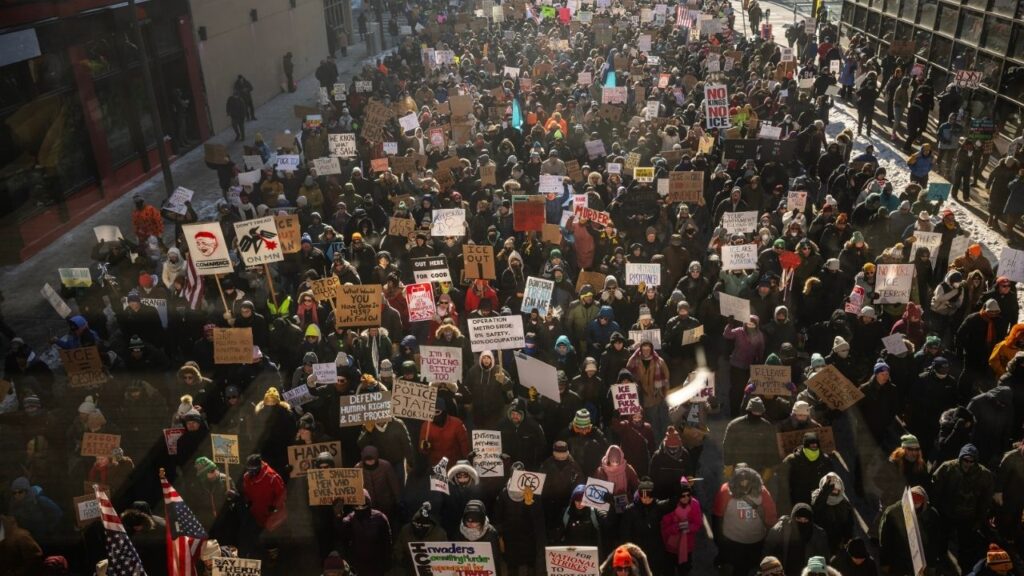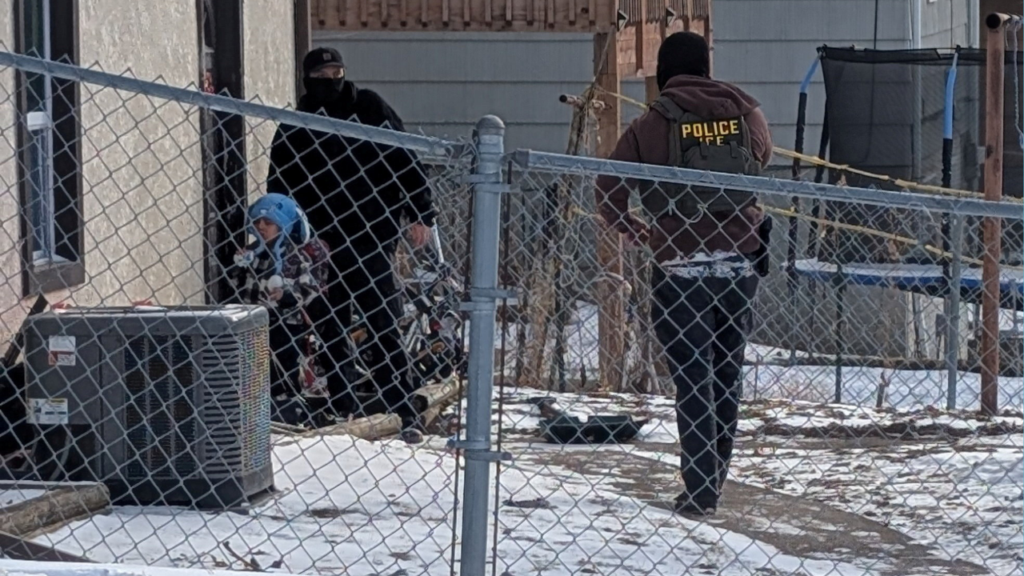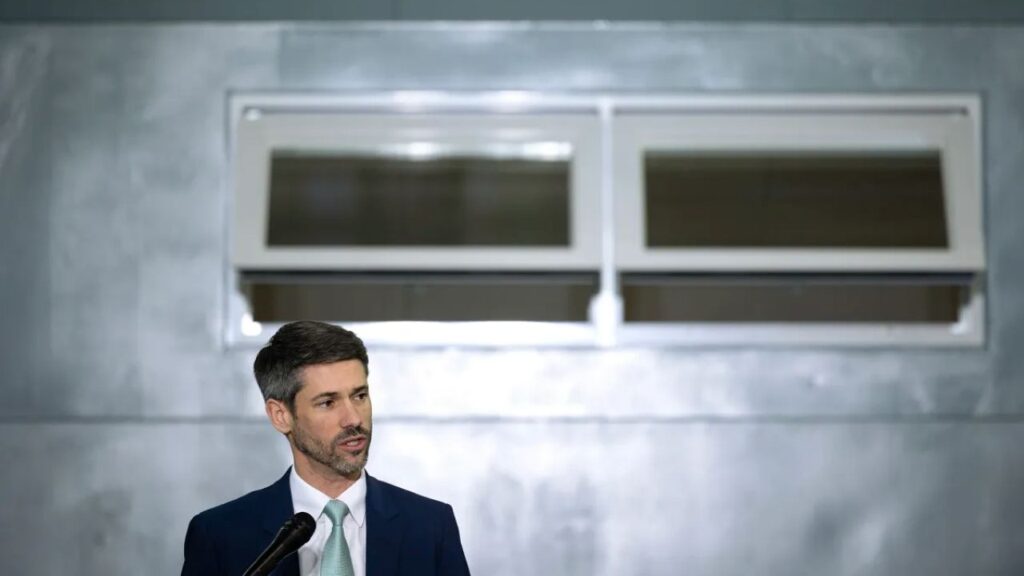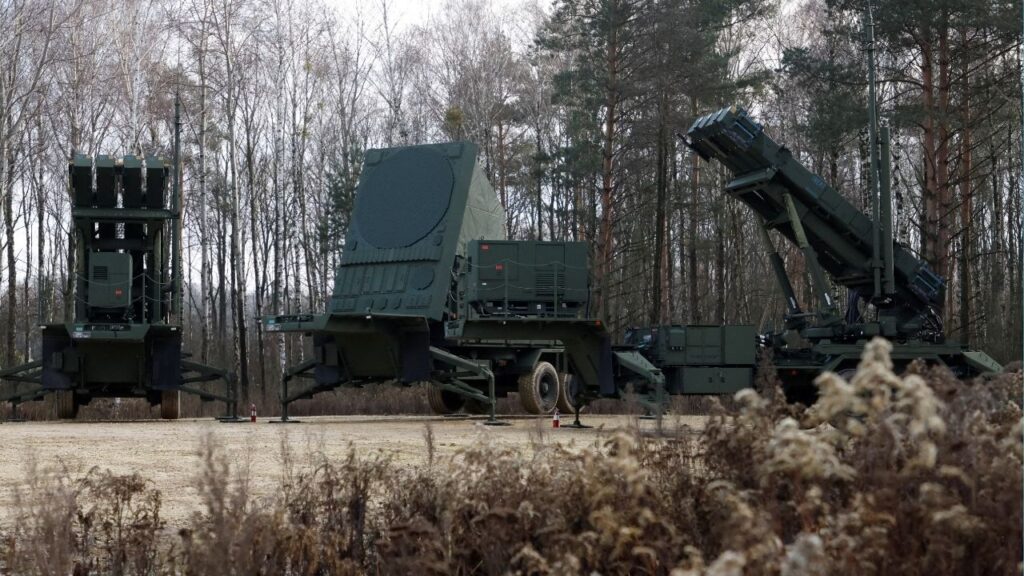Share
COMAYAGUA, Honduras — The 3-year-old girl traveled for weeks cradled in her father’s arms, as he set out to seek asylum in the United States. Now she won’t even look at him.
After being forcibly separated at the border by government officials, sexually abused in U.S. foster care and deported, the once bright and beaming girl arrived back in Honduras withdrawn, anxious and angry, convinced her father abandoned her.
“I think about this trauma staying with her too, because the trauma has remained with me and still hasn’t faded,” he said, days after their reunion.
This month, new government data shows the little girl is one of an unprecedented 69,550 migrant children held in U.S. government custody over the past year, enough infants, toddlers, kids and teens to overflow the typical NFL stadium. That’s more children detained away from their parents than any other country, according to United Nations researchers. And it’s happening even though the U.S. government has acknowledged that being held in detention can be traumatic for children, putting them at risk of long-term physical and emotional damage.
Some of these migrant children who were in government custody this year have already been deported. Some have reunited with family in the U.S., where they’re trying to go to school and piece their lives back together. About 4,000 are still in government custody, some in large, impersonal shelters. And more arrive every week.
This story is part of an ongoing joint investigation between The Associated Press and the PBS series FRONTLINE on the treatment of migrant children, which includes the film “Kids Caught in the Crackdown” premiering on PBS and online Nov. 12 at 10 p.m. EST/9 p.m. CST.
Younger Children Are at Greater Risk
The nearly 70,000 migrant children who were held in government custody this year — up 42 percent in fiscal year 2019 from 2018 — spent more time in shelters and away from their families than in prior years. The Trump administration’s series of strict immigration policies has increased the time children spend in detention, despite the government’s own acknowledgment that it does them harm. In 2013, Australia detained 2,000 children during a surge of maritime arrivals. In Canada, immigrant children are separated from their parents only as a last resort; 155 were detained in 2018. In the United Kingdom, 42 migrant children were put in shelters in 2017, according to officials in those countries.
“Early experiences are literally built into our brains and bodies,” said Dr. Jack Shonkoff, who directs Harvard University’s Center on the Developing Child. Earlier this year, he told Congress that “decades of peer-reviewed research” show that detaining kids away from parents or primary caregivers is bad for their health. It’s a brain-wiring issue, he said.
“Stable and responsive relationships promote healthy brain architecture,” Shonkoff said. “If these relationships are disrupted, young children are hit by the double whammy of a brain that is deprived of the positive stimulation it needs, and assaulted by a stress response that disrupts its developing circuitry.”
Younger children are at greater risk, because their biological systems are less developed, he said. Previous harm and the duration of separation are also more likely to lead to trauma.
One Honduran teen who was held in a large detention center for four months before reuniting with his mother said that, as each day passed, his fear and anxiety grew.
“There was something there that made us feel desperate. It was freedom. We wanted to be free,” he recalled. “There was despair everywhere.”
The Father Had No Idea Where His Daughter Was for Three Panicked Weeks
Another Honduran teen, who arrived in the U.S. at 16 and was detained in a series of increasingly secure shelters for more than a year, said he saw his peers harm themselves.
“They would cry sometimes, alone, or they would hit themselves against the wall,” he said. “I thought that was because of them being here for such a long time.”
The 3-year-old Honduran girl was taken from her father when immigration officials caught them near the border in Texas in March 2019 and sent her to government-funded foster care. The father had no idea where his daughter was for three panicked weeks. It was another month before a caregiver put her on the phone but the girl, who turned 4 in government custody, refused to speak, screaming in anger.
“She said that I had left her alone and she was crying,” said her father during an interview with the AP and Frontline at their home in Honduras. “‘I don’t love you Daddy, you left me alone,'” she told him. The father agreed to speak about their case on condition of anonymity for safety reasons.
What the little girl didn’t, or couldn’t, tell her dad was that another child in her foster home woke her up and began molesting her, according to court records. As the days passed, she began urinating on herself and seemed unable to eat or drink, a foster parent said in the records.
“She’s so small for something like that to happen,” said her father, who found out about his daughter’s abuse while he was in detention. “I felt like I couldn’t do anything to help her.”
Desperate to see his daughter, he begged for a DNA test which, four months into his detention, proved their relationship. Still the government kept them apart. In June, he gave up and asked a judge to reunite him with his daughter and deport them. The government sent him back to Honduras alone. His daughter followed a month later in mid-August.

‘Unaccompanied Alien Children’
On an August afternoon in their hometown, the little girl had her hair tied up in pigtails. Her dress was a frilly lavender and her pink sneakers were decorated with bows. She played with her younger sister and snuggled up beside her grandfather, but ignored her father’s entreaties and refused to hold his hand, convinced he tried to leave her for good.
“When I wanted to cradle her in my arms she started to cry,” he said.
He didn’t know of any psychological support in their town to help her process the abuse she suffered.
“For now we’re going to try to give her more affection, more love and then if there isn’t a change we’re going to try to find some help,” he said.
The U.S. government calls migrant children held without their parents “Unaccompanied Alien Children” — UAC in bureaucratic jargon. Federal law requires the Department of Health and Human Services’ Office of Refugee Resettlement to provide them food and shelter, and medical and mental health care. But the HHS Office of Inspector General found there aren’t enough clinicians or specialized care in shelters holding migrant children.
HHS spokesman Mark Weber said that, with the largest number of migrant children in their program’s history, “you must give credit to the Office of Refugee Resettlement and the shelter network staff for managing a program that was able to rapidly expand and unify the largest number of kids ever, all in an incredibly difficult environment.”
In an urgent request to fund an emergency shelter earlier this year, HHS warned “Without a way to provide these services, there is an unacceptable risk that thousands of UAC would be without their basic human needs, which would result in injury/death of children.”
The U.S. Is Now Being Sued for Hundreds of Millions of Dollars by Some Families
In the September issue of the journal Pediatrics, the American Academy of Pediatrics says migrant children who are detained “face almost universal traumatic histories.” The group recommends specific therapies to help children recover and reunite with their families, warning of serious consequences if left untreated. But few of the thousands of children separated from their parents are receiving therapy after being deported back to Central America. Many are from impoverished communities where there are few, if any, accessible mental health resources.
Child trauma expert Ryan Matlow at Stanford University says toxic stress in children is associated with higher rates of depression, anxiety, post-traumatic stress syndrome, heart disease, cancer, and even early death.
“So we want to be a country that inflicts further trauma on individuals who are experiencing intensive adversity and are seeking refuge and help in a neighboring nation?” asked Matlow, who has met with detained migrant children inside several of the largest migrant detention facilities. “Are we ok with the implications of doing harm to vulnerable children – to 2 and 3-year-olds and to teenagers as well? Is that something that we can accept?”
This year President Donald Trump signed a law approving $2.8 billion for the government to house, transport and care for migrant children. Nine out of 10 come from Guatemala, Honduras and El Salvador, with fewer than 3% from Mexico. They’re fleeing Central America often to save their own lives, because violence and abuse, even murder, are committed with impunity under corrupt governments the U.S. has supported for decades.
Immigration Authorities Have Separated More Than 5,400 Children From Their Parents
While children have been arriving alone at the U.S. border for more than a decade, the number of children in government custody has grown sharply over the last two years, largely because they have been held for longer time periods. A few months after Trump took office, the federal agency was caring for about 2,700 children, reuniting them with awaiting relatives or sponsors in about a month. This June, that topped 13,000, and they stayed in custody for about two months.
U.S. immigration authorities have separated more than 5,400 children from their parents at the Mexico border, before, during and after a controversial “zero tolerance” policy was enacted and then ended in the spring of 2018.
Eskinder Negash, who heads the nonprofit U.S. Committee for Refugees and Immigrants, knows the trauma of separation and detention all too well, and has spent his life seeking solutions.
“I was a refugee, I know what they have gone through,” said Negash, who fled Ethiopia alone as a teen after his country was thrown into chaos by a military coup.
Negash also knows what it’s like to suddenly have to care for tens of thousands of migrant children caught at the border. He was heading the Office of Refugee Resettlement in 2014 under the Obama administration when more than 60,000 children surged over the border, mostly unaccompanied. Negash and his team scrambled to shelter them in a variety of situations, including on military bases. The fallout, at the time, was harsh: human rights advocates who today decry the way children are treated in government custody were, under Obama, frustrated with their care and urged that children be swiftly granted asylum.
Leaving government to head the nonprofit refugee support agency USCRI, Negash wanted to do better for children, both in the U.S. and abroad.

‘I Don’t Think About Migrating Anymore’
In El Salvador, USCRI now runs the Livelihoods project, teaching young adults who were deported from the U.S. skills to support themselves. On a recent visit, students clustered in small groups around workbenches to practice building circuits that would make small motors run. They learn everything from residential and commercial electrical installation to building substations and transformers. Other career tracks include auto mechanic, chef and bartender. Since 2016, about 400 young adults have graduated from the program, which is a partnership with the El Salvador government.
“I don’t think about migrating anymore,” said José Fernando Guillén Rodríguez, 21, who was apprehended in the U.S. at 18 and spent time in adult detention before being deported. Now he’s completed a year of daily electrical classes and works as an apprentice at an electrical construction company.
Meanwhile, in the U.S. this summer, USCRI also opened what Negash hopes is a model government-funded shelter in southern Florida, just down the road from Trump’s Mar-a-Lago Club. Rinconcito del Sol, which translates to “A Little Corner of Sunshine,” is different than other facilities holding migrant children.
There is no uniformed security guard at the entrance. The residents, girls 13-17, can call their families as needed, staff say, and there are more therapeutic services — including intensive treatment for victims of trafficking and abuse — throughout the week. They sleep two to a room, and are free to wander in a large, outdoor area, or “shop” in a store filled with donated items. Case workers hustle to reunite them with family in the U.S. quickly, averaging four weeks. And costs to taxpayers are a third of the $775 per day costs at large, emergency shelters where kids sleep 100 to a room.
“Here, we change lives,” said shelter director Elcy Valdez, who worked as an ORR federal field specialist visiting a variety of facilities for six years. She saw a variety of operations, and took note of best practices. Today they hope to share their practices with some 170 shelter programs in 23 states.
“The girls come in very sad, nervous, not knowing what to expect, unsure what the future holds for them,” she said. “We give them that sense of security, of safety for the first time.”
[activecampaign form=29]


















